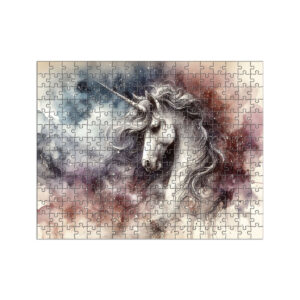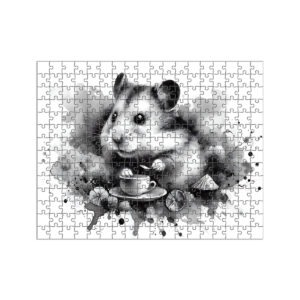
Explore & Play
Discover interesting topics and solve the accompanying crossword puzzle.
Desire Crossword | Depths of Ambition and Passion
Table of Contents
At the start of this blog post, you’ll find the Desire crossword—an engaging way to explore the many facets of ambition, passion, and longing. You can choose to dive into the crossword first and return to the article afterward for deeper insights, or if you’re not yet familiar with the topic, you may prefer to read the article first and then challenge yourself with the Desire crossword. The choice is yours, and both paths will enrich your understanding of desire and its role in our lives.
Desire Crossword
You can either fill in the crossword puzzle directly on this page or click the button in the bottom right corner to print it for free.

The Psychology of Desire: How Ambition, Passion, and Longing Shape Our Lives
Desire is a powerful force that drives our thoughts, actions, and sense of purpose. It lies at the heart of human motivation, affecting every area of life, from personal relationships to career aspirations. Desire can uplift us, pushing us toward growth and achievement, or it can consume us, leading to obsession. This article dives into the different facets of desire, from ambition and passion to temptation and envy. Understanding these elements can offer valuable insights into why we want what we want—and how these wants shape who we are.
A fun way to explore these concepts is by solving our crossword puzzle about desire! It incorporates words related to the many forms of desire, making it an enjoyable way to engage with these ideas.
The Roots of Desire: Understanding Our Inner Ambitions
At its core, desire often begins with ambition—the drive to achieve something greater. Ambition is what pushes us to set and pursue goals, whether they relate to career advancement, personal relationships, or self-improvement. This drive is both universal and deeply personal, taking different forms depending on individual aspirations.
Defining Ambition and Aspiration
Ambition is often seen as a forward-focused desire to achieve a significant purpose. People set goals that reflect their deepest aspirations and outline the steps they need to reach them. Aspiration differs slightly, representing a broader and more idealistic version of ambition, which can inspire but sometimes also frustrate when reality doesn’t align with our high hopes. Together, ambition and aspiration give shape to our dreams and allow us to direct our energy toward meaningful achievement.
Goals as a Compass for Ambition
Goals are essential markers on the path of ambition. A clear goal transforms vague ambition into a defined objective, providing a drive that keeps us moving forward. This pursuit, when balanced and healthy, is an essential part of human fulfillment. However, when ambition becomes too intense or competitive, it risks slipping into unhealthy territory, which we’ll explore later.
The Emotional Spectrum of Longing and Passion
Beyond ambition lies a more personal and intense experience of desire: passion. While ambition may be directed outward toward achieving goals, passion is often felt more deeply, stirring emotions that can drive action in both constructive and disruptive ways.
Passion: The Fire That Fuels Achievement
Passion can provide the energy to persevere when the journey becomes challenging. It gives life to creative endeavors, powers professional dedication, and can be an enduring force in personal relationships. This form of desire, however, can also cloud judgment, especially when it veers toward obsession. Still, in its healthiest form, passion fuels motivation and makes the pursuit of a goal an engaging experience.
Longing: A Persistent Craving for Fulfillment
Longing differs from passion in that it often reflects a yearning for something missing—a deeper, more emotional sense of desire. This type of craving often drives people toward significant life changes, motivating them to find meaning and connection in new ways. While longing can be challenging, it also points us toward what we truly value.
The Fuel of Fantasy and Hope
Our hopes and fantasies often fuel our desires, creating a mental image of what could be. Fantasy gives imagination free rein, while hope provides a light that guides us forward even in difficult times. Together, these qualities enrich our experience of desire, keeping us engaged with the future.
Fantasy as Motivation
Fantasy allows us to dream without the constraints of reality. When we imagine a different life, a new career, or an ideal relationship, we enter a space of creative possibility. This freedom to dream can inspire significant changes, motivating us to shape our lives closer to our idealized visions. Fantasy, therefore, serves as an essential motivator, even if its scenarios remain somewhat distant.
Hope as a Guiding Light
Hope is a foundational aspect of desire that encourages resilience and determination. Unlike fantasy, which may remain purely imaginative, hope gives us the courage to pursue achievable dreams. By clinging to hope, we find purpose in our aspirations, allowing our desires to drive us forward even when obstacles arise. Hope and fantasy combined create a dynamic duo in the psychology of desire.
Temptation and Urge: The Enticement of the Forbidden
While some desires align with our goals, others tempt us toward actions that may not serve our best interests. These forms of desire, often labeled as temptations, test our self-control and reveal the limits of our willpower.
Understanding the Nature of Temptation
Temptation entices us toward decisions or behaviors that might offer immediate satisfaction but conflict with our long-term goals. It’s the pull to indulge in fleeting pleasures, even when we know they may have negative consequences. In this sense, temptation serves as a reminder of our vulnerability to desire, challenging us to balance satisfaction with responsibility.
Managing Impulses and the Urge to Act
The urge to act on temptation is a universal experience. We all face moments when immediate satisfaction calls louder than reason, making it difficult to resist. Yet learning to manage these impulses is a crucial part of maintaining control over our desires. Finding a balance between acting on desires and upholding our values requires a commitment to self-discipline and foresight.
Positive and Negative Faces of Desire: Motivation vs. Obsession
Desire can either motivate us toward greatness or consume us entirely. This duality highlights the importance of understanding when ambition and passion turn into something less healthy.
Motivation: A Positive Force for Achievement
Motivation represents the productive side of desire, encouraging us to pursue growth, development, and personal fulfillment. When we set meaningful goals, motivation provides the energy to see them through. It’s the desire to become our best selves, pushing us to strive for improvement in every area of life.
When Desire Becomes Obsession
In contrast, obsession takes motivation to an extreme. When a desire consumes our thoughts, it can lead to unbalanced decisions, strained relationships, and even burnout. Obsession reveals the dark side of desire, where the pursuit becomes the only focus. Recognizing when motivation shifts to obsession helps us maintain a healthy relationship with our goals.
The Double-Edged Sword of Envy and Covetousness
Desire is not always pure or altruistic; sometimes, it manifests as envy or even greed. These more negative forms of desire can lead to tension, rivalry, and dissatisfaction.
Understanding Envy and Covetousness
Envy arises when we see others possessing what we lack, creating a desire to have the same. Although envy can sometimes inspire us to work harder, it often leads to bitterness, especially when it becomes a fixation. Covetousness is similar but even more intense, representing a strong desire for another person’s possessions or status.
Greed and Lust: When Desire Crosses Boundaries
Both greed and lust reflect a desire that has spiraled out of control. Greed pushes us to amass more than we need, while lust can lead to impulsive actions that might harm others. These extreme forms of desire can create significant ethical and emotional challenges, making it essential to approach desire with awareness and balance.
Finding Balance: Relishing the Journey Over the Destination
As we pursue our goals, it’s essential to relish the journey, not just the destination. Finding joy in each step of the process can make the pursuit of desire a source of lasting happiness.
The Art of Relishing Experiences
To truly relish something means to appreciate it fully, savoring the moment. Relishing our experiences enriches life by helping us see the value in our journey rather than just in the achievement. This approach provides a healthier, more sustainable form of fulfillment, rooted in enjoyment rather than fixation.
Attraction and Fascination in Everyday Life
Our experiences are filled with moments of attraction and fascination that invite us to appreciate the present. When we approach life with a sense of curiosity, we maintain a healthy relationship with desire, allowing it to enhance our enjoyment rather than control it.
When Zeal Becomes Zealotry: The Risk of Losing Perspective
There’s a fine line between dedication and zealotry—when passion becomes all-consuming. While zeal represents strong enthusiasm, zealotry signifies a level of dedication that disregards balance and perspective.
Zeal vs. Zealotry
Zeal is a powerful motivator, often seen in people who are deeply committed to a cause or goal. However, when zeal turns into zealotry, individuals become so focused that they may neglect other aspects of life. Recognizing the boundary between zeal and zealotry helps us pursue desires with a healthy sense of proportion.
Balancing Passion and Other Values
To maintain balance, it’s crucial to pursue our ambitions while keeping sight of other values and priorities. This approach ensures that our passion doesn’t overshadow other aspects of our lives, allowing us to lead more fulfilling lives.
Desire as a Force for Self-Discovery
At its best, desire helps us learn about ourselves, revealing our deepest needs and values. The journey to fulfill our ambitions offers opportunities for growth and insight, guiding us toward self-discovery.
Self-Reflection through Desire
Examining our desires allows us to understand what matters most. As we set and achieve goals, we gain insight into our character, priorities, and values, shaping our identity in profound ways.
The Role of Longing and Aspiration in Personal Growth
Longing and aspiration are integral to our personal development. They show us where we want to go and who we want to become, encouraging us to take steps toward self-improvement and fulfillment.
Reflecting on Desire: A Journey of Growth and Balance
Desire is a complex and powerful force that defines much of the human experience. It fuels our ambitions, colors our passions, and, when balanced, brings meaning to our lives. By understanding the different forms of desire, we can approach our ambitions with mindfulness and use our desires as tools for growth and fulfillment.
Curious to explore more? Try out our desire-themed crossword puzzle—it’s a fun way to deepen your understanding of this fascinating topic!
Share to...
I hope you enjoy the content.
Want to receive our daily crossword puzzle or article? Subscribe!
You may also be interested in
Share to…
Want to receive our daily crossword puzzle?
-
Jigsaw Puzzles
Majestic Unicorn Watercolor Puzzle 250 | 300 | 500 Brikker
kr 348,00 – kr 439,00Price range: kr 348,00 through kr 439,00 Select options This product has multiple variants. The options may be chosen on the product page -
Jigsaw Puzzles
Zodiac Ink Dog Puzzle: Artful Elegance 250 | 300 | 500 Pieces
kr 348,00 – kr 439,00Price range: kr 348,00 through kr 439,00 Select options This product has multiple variants. The options may be chosen on the product page -
Jigsaw Puzzles
Whimsical Hamster Jigsaw Puzzle in Watercolor Style 250 | 300 | 500 Brikker
kr 348,00 – kr 439,00Price range: kr 348,00 through kr 439,00 Select options This product has multiple variants. The options may be chosen on the product page

















